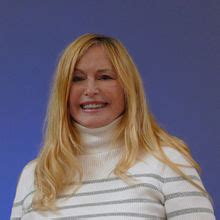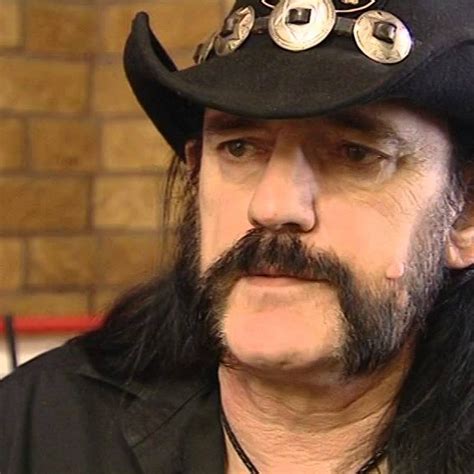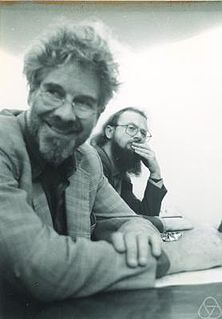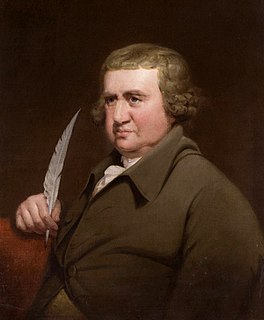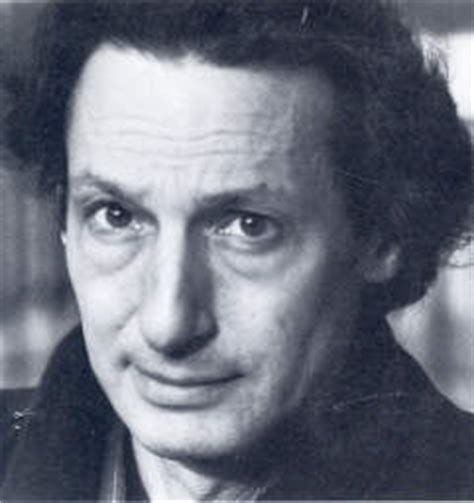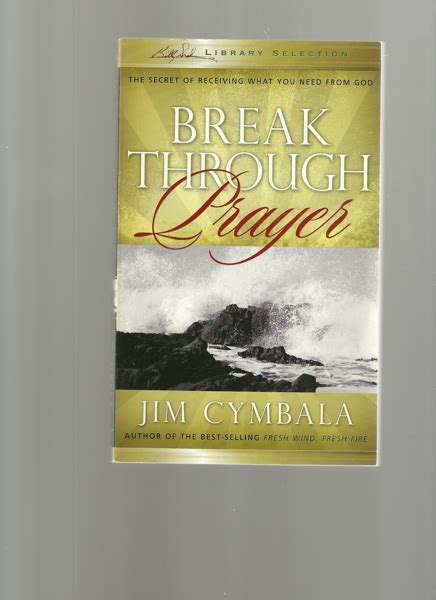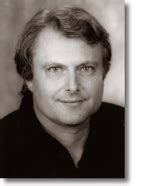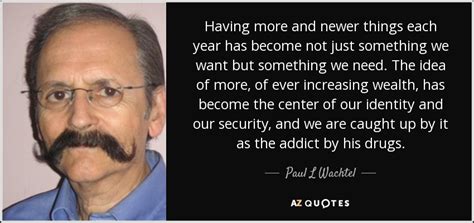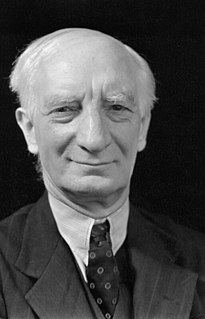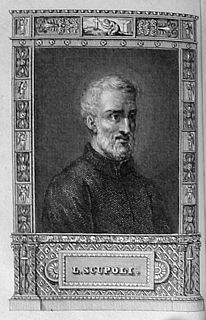Top 1200 Certainty Quotes & Sayings - Page 20
Explore popular Certainty quotes.
Last updated on April 21, 2025.
Through experiments over the past few decades physicists have discovered matter to be completely mutable into other particles or energy and vice-versa and on a subatomic level, matter does not exist with certainty in definite places, but rather shows 'tendencies' to exist. Quantum physics is beginning to realise that the Universe appears to be a dynamic web of interconnected and inseparable energy patterns. If the universe is indeed composed of such a web, there is logically no such thing as a part. This implies we are not separated parts of a whole but rather we are the Whole.
We may remark in passing that to be blind and beloved may, in this world where nothing is perfect, be among the most strangely exquisite forms of happiness. The supreme happiness in life is the assurance of being loved; of being loved for oneself, even in spite of oneself; and this assurance the blind man possesses. In his affliction, to be served is to be caressed. Does he lack anything? no. Possessing love he is not deprived of light. A love, moreover, that is wholly pure. There can be no blindness where there is this certainty.
It is a certainty that Keegan would not have agreed to return unless Mike Ashley had committed to sanctioning a mammoth spending spree. The downside, which Keegan will soon discover, is the law of diminishing returns in a league that is now the richest in the world. The type of multi-million-pound investment that bankrolled the first Newcastle revival under Keegan is now two-a-penny. Buying success just isn't as easy as it used to be. The Premiership's paradox is that the more money there is, the more the art of management gains in value.
The dignity of the human person is a transcendent value, always recognized as such by those who sincerely search for the truth. Indeed, the whole of human history should be interpreted in the light of this certainty. Every person, created in the image and likeness of God (cf. Gn 1:26 28), is therefore radically oriented towards the Creator, and is constantly in relationship with those possessed of the same dignity. To promote the good of the individual is thus to serve the common good, which is that point where rights and duties converge and reinforce one another.
And when I hear it said that God is good and He will pardon us, and then see that men cease not from evil-doing, oh, how it grieves me! The infinite goodness with which God communicates with us, sinners as we are, should constantly make us love and serve Him better; but we, on the contrary, instead of seeing in his goodness an obligation to please Him, convert it into an excuse for sin which will of a certainty lead in the end to our deeper condemnation.
Gradually, at various points in our childhoods, we discover different forms of conviction. There's the rock-hard certainty of personal experience ("I put my finger in the fire and it hurt,"), which is probably the earliest kind we learn. Then there's the logically convincing, which we probably come to first through maths, in the context of Pythagoras's theorem or something similar, and which, if we first encounter it at exactly the right moment, bursts on our minds like sunrise with the whole universe playing a great chord of C Major.
A thin line separates laughter and pain, comedy and tragedy, humor and hurt. Our lives constantly walk that line. When we slip off on one side or the other, we're taken by surprise. But who said there wouldn't be surprises? Knowing God just means that all the rules will be fair; at the end of our life drama, we'll see that. We never know how things will turn out, but if we know with certainty they will make sense regardless of how they turn out, we're on to something.
All I'm arguing for really is that we should have a conversation where the best ideas really thrive, where there's no taboo against criticizing bad ideas, and where everyone who shows up, in order to get their ideas entertained, has to meet some obvious burdens of intellectual rigor and self-criticism and honesty-and when people fail to do that, we are free to stop listening to them. What religion has had up until this moment is a different set of rules that apply only to it, which is you have to respect my religious certainty even though I'm telling you I arrived at it irrationally.
And why do we reduce the beauty of relating to relationship? Why are we in such a hurry? - because to relate is insecure, and relationship is a security, relationship has a certainty. Relating is just a meeting of two strangers, maybe just an overnight stay and in the morning we say good-bye. Who knows what is going to happen tomorrow? And we are so afraid that we want to make it certain, we want to make it predictable. We would like tomorrow to be according to our ideas; we don't allow it freedom to have its own say. So we immediately reduce every verb to a noun.
The scientist has to take 95 per cent of his subject on trust. He has to because he can't possibly do all the experiments, therefore he has to take on trust the experiments all his colleagues and predecessors have done. Whereas a mathematician doesn't have to take anything on trust. Any theorem that's proved, he doesn't believe it, really, until he goes through the proof himself, and therefore he knows his whole subject from scratch. He's absolutely 100 per cent certain of it. And that gives him an extraordinary conviction of certainty, and an arrogance that scientists don't have.
Was there another life she was meant to be living? At times she felt a keen certainty that there was ? a phantom life, taunting her from just out of reach. A sense would come over her while she was drawing or walking, and once while she was dancing slow and close with Kaz, that she was supposed to be doing something else with her hands, with her legs, with her body. Something else. Something else. Something else.
After we have thought out everything carefully in advance and have sought and found without prejudice the most plausible plan, we must not be ready to abandon it at the slightest provocation. should this certainty be lacking, we must tell ourselves that nothing is accomplished in warfare without daring; that the nature of war certainly does not let us see at all times where we are going; that what is probable will always be probable though at the moment it may not seem so; and finally, that we cannot be readily ruined by a single error, if we have made reasonable preparations.
Another thing very injurious to the child is the tying and cutting of the navel string too soon, which should always be left till the child has not only repeatedly breathed but till all pulsation in the cord ceases. As otherwise the child is much weaker than it ought to be, a part of the blood being left in the placenta which ought to have been in the child and at the same time the placenta does not so naturally collapse, and withdraw itself from the sides of the uterus, and is not therefore removed with so much safety and certainty.
Now suppose both death and hell were utterly defeated. Suppose the fight was fixed. Suppose God took you on a crystal ball trip into your future and you saw with indubitable certainty that despite everything — your sin, your smallness, your stupidity — you could have free for the asking your whole crazy heart’s deepest desire: heaven, eternal joy. Would you not return fearless and singing? What can earth do to you, if you are guaranteed heaven? To fear the worst earthly loss would be like a millionaire fearing the loss of a penny — less, a scratch on a penny.
Historians constantly rewrite history, reinterpreting (reorganizing) the records of the past. So, too, when the brain's coherent responses become part of a memory, they are organized anew as part of the structure of consciousness. What makes them memories is that they become part of that structure and thus form part of the sense of self; my sense of self derives from a certainty that my experiences refer back to me, the individual who is having them. Hence the sense of the past, of history, of memory, is in part the creation of the self.
She'd always known he loved her, it had been the one certainty above all others that had never changed, but she had never said the words aloud and she had never meant them quite this way before. She had said it to him, and she hardly knew what she had meant. They were terrifying words, words to encompass a world.
I am a product of endless books. My father bought all the books he read and never got rid of any of them. There were books in the study, books in the drawing room, books in the cloakroom, books (two deep) in the great bookcase on the landing, books in a bedroom, books piled as high as my shoulder in the cistern attic...In the seemingly endless rainy afternoons I took volume after volume from the shelves. I had always the same certainty of finding a book that was new to me as a man who walks into a field has of finding a new blade of grass.
She loved Bram in a clear-eyed way she’d never loved her ex-husband, no rose-colored glasses or mindless giddiness, no Cinderella fantasies or false certainty that he’d put her life in order. What she felt for Bram was messy, honest, and soul-deep. He felt like…part of her, the best and the worst. Like someone she wanted to struggle through life with; share triumphs and catastrophes; share holidays, birthdays, every days
I am convinced that 1941 will be the crucial year of a great New Order in Europe. The world shall open up for everyone. Privileges for individuals, the tyranny of certain nations and their financial rulers shall fall. And last of all this year will help to provide the foundations of a real understanding among peoples, and with it the certainty of conciliation among nations. . . . Those nations who are still opposed to us will some day recognize the greater enemy within. Then they will join us in a combined front, a front against Jewish exploitation and racial degeneration.
Because we are God's children...we can bring our needs to him with certainty in prayer.... Prayer is not some kind of heavenly lottery. Nor does the Bible counsel us to pray with an "I hope this will work"...attitude. Instead...prayer brings us before the throne of grace as children seeking the help of their heavenly Father. That's the heart of breakthrough, successful prayer-the bold confidence that we are talking to the Father who delights to supply our needs.
In the end it all comes down to this: you have a choice (or more accurately a rolling tangle of choices) between giving your work your best shot and risking that it will not make you happy, or not giving it your best shot - and thereby guaranteeing that it will not make you happy. It becomes a choice between certainty and uncertainty. And curiously, uncertainty is the comforting choice.
Lack of self-confidence is, more often than not, simple laziness. We feel confused and uncertain because we do not know. But instead of making the effort to investigate, we procrastinate and worry. We tell ourselves we can't instead of learning how we can. If we used the mental energy we expend in worry and fear to get out and find out about what we do not know, we would see our self-confidence grow. Lack of self-confidence is not overcome by faith, but by action. It is a lack, not of certainty, but of effort. Too often we are certain that we can't before we give ourselves a fair chance.
I never wavered in my certainty that God did not exist. I was simply liberated by the thought that there might be a way to engage with religion without having to subscribe to its supernatural content - a way, to put it in more abstract terms, to think about Fathers without upsetting my respectful memory of my own father. I recognized that my continuing resistance to theories of an afterlife or of heavenly residents was no justification for giving up on the music, buildings, prayers, rituals, feasts, shrines, pilgrimages, communal meals and illustrated manuscripts of the faiths.
Messages from the angels will come with a feeling of certainty and peace, even if the messages are intimidating because they are pushing you past your comfort zone. You have to follow the road maps the angels give you, or else your prayer may not be fully answered. Sometimes people will say to me they think God and the angels are ignoring them, but when I talk to them and the angels, I find it's the person ignoring God and the angels.
We say, then, to anyone who is under trial, give Him time to steep the soul in His eternal truth. Go into the open air, look up into the depths of the sky, or out upon the wideness of the sea, or on the strength of the hills that is His also; or, if bound in the body, go forth in the spirit; spirit is not bound. Give Him time and, as surely as dawn follows night, there will break upon the heart a sense of certainty that cannot be shaken.
The God who inspired the Bible is the same God who made the universe, Earth, and all life. This God is the very definition of truth; therefore nature's record will never contradict Scripture and vice versa. When a seeming contradiction confronts us, we can know with certainty we have either misunderstood (one, the other, or both revelations) or perhaps we haven't yet dug deploy enough. Whatever the case, we can embrace the opportunity to gain greater knowledge and appreciation for the Bible, for nature, and for the God who is responsible for both.
Very few people would choose to have even the most fabled assortment of goods if it meant getting cancer within the year. But the choice involves not the certainty of cancer very soon but an increased probability of cancer at some time in the future. The cancers are no less real; millions will die painfully and prematurely because of what we do to our environment. But the choice is not an easily visualizable one, and our capacity of denial comes strongly into play - as it tends to whenever we must weigh future costs against immediate benefits.
It wasn't about wanting to die or having nothing left to live for; it was about letting go. You live your life doing what you're supposed to do, following the rules, following your conscience no matter what your gut tells you - and most times, that's okay. Control is good. It allows you to believe in certainty and absolutes, like lining up the perfect shot. But when you hold on for so long, and hold on so tight, every once in a while you have to close your eyes and jump." Kelley Armstrong - Exit Strategy
One third, more or less, of all the sorrow that the person I think I am must endure is unavoidable. It is the sorrow inherent in the human condition, the price we must pay for being sentient and self-conscious organisms, aspirants to liberation, but subject to the laws of nature and under orders to keep on marching, through irreversible time, through a world wholly indifferent to our well-being, toward decrepitude and the certainty of death. The remaining two thirds of all sorrow is homemade and, so far as the universe is concerned, unnecessary.
The self-confidence of the warrior is not the self-confidence of the average man. The average man seeks certainty in the eyes of the onlooker and calls that self-confidence. The warrior seeks impeccability in his own eyes and calls that humbleness. The average man is hooked to his fellow men, while the warrior is hooked only to infinity.
The very beginning of Genesis tells us that God created man in order to give him dominion over fish and fowl and all creatures. Of course, Genesis was written by a man, not a horse. There is no certainty that God actually did grant man dominion over other creatures. What seems more likely, in fact, is that man invented God to sanctify the dominion that he usurped for himself over the cow and the horse.
Full employment does not mean literally no unemployment; that is to say, it does not mean that every man and woman in the country who is fit and free for work is employed productively every day of his or her working life ... Full employment means that unemployment is reduced to short intervals of standing by, with the certainty that very soon one will be wanted in one's old job again or will be wanted in a new job that is within one's powers.
It is terribly important to realize that the leap of faith is not so much a leap of thought as of action. For while in many matters it is first we must see then we will act; in matters of faith it is first we must do then we will know, first we will be and then we will see. One must, in short, dare to act wholeheartedly without absolute certainty.
The point is that petty, frustrating crap like this is exactly where the work of choosing comes in. Because the traffic jams and crowded aisles and long checkout lines give me time to think, and if I don't make a conscious decision about how to think and what to pay attention to, I'm going to be pissed and miserable every time I have to food-shop, because my natural default-setting is the certainty that situations like this are really all about me, about my hungriness and my fatigue and my desire to just get home.
Having spent 200 hours on the above, the young player, even if he possesses no special talent for chess, is likely to be among those two or three thousand chessplayers [who play on a par with a master]. There are, however, a quarter of a million chessplayers who annually spend no fewer than 200 hours on chess without making any progress. Without going into any further calculations, I can assert with a high degree of certainty that nowadays we achieve only a fraction of what we are capable of achieving.
I lost the conviction that lights would always turn green for me, the pleasant certainty that those rather passive virtues which had won me approval as a child automatically guaranteed me not only Phi Beta Kappa keys but happiness, honor, and the love of a good man; lost a certain touching faith in the totem power of good manners, clean hair, and a proven competence on the Stanford-Binet scale. To such doubtful amulets had my self-respect been pinned, and I faced myself that day with the non-plused apprehension of someone who has come across a vampire and has no crucifix at hand.
These principles laid down as in variable rules: that one must pay a card sharper, but need not pay a tailor; that one must never tell a lie to a man, but one may to a woman; that one must never cheat any one, but one may a husband; that one must never pardon an insult, but one may give one and so on. These principles were possibly not reasonable and not good, but they were of unfailing certainty, and so long as he adhered to them, Vronsky felt that his heart was at peace and he could hold his head up.
The hypotheses which we accept ought to explain phenomena which we have observed. But they ought to do more than this; our hypotheses ought to foretell phenomena which have not yet been observed; ... because if the rule prevails, it includes all cases; and will determine them all, if we can only calculate its real consequences. Hence it will predict the results of new combinations, as well as explain the appearances which have occurred in old ones. And that it does this with certainty and correctness, is one mode in which the hypothesis is to be verified as right and useful.
Your body can dictate your mind, so when I walk to a fight a lot of times I'm scared, I'm scared to death, I have a lot of doubts of myself, I'm afraid to fail, I'm afraid to be humiliated in front of everybody; but what happens, I act like it's impossible for me to fail and that my victory is a certainty. So as I'm walking to the Octagon and I act with confidence my body takes over my mind and I become confident for real. As I'm walking I see the change in my mind and when I reach the Octagon I'm a different person, I'm very confident.
My mother has made choices in her life, as we all must, and she is at peace with them. I can see her peace. She did not cop out on herself. The benefits of her choices are massive-a long, stable marriage to a man she still calls her best friend; a family that has extended now into grandchildren who adore her; a certainty in her own strength. Maybe some things were sacrificed, and my dad made his sacrifices, too-but who amongst us lives without sacrifice?
In moments of spiritual crisis we naturally fall back upon what worked for us, or seemed to work, heretofore. Sometimes this shows up through the reassertion of our old values in belligerent, testy ways. Regression of any kind is just such a return to old presumptions, often after they have been shown to be insufficient for the complexity of larger questions. The virtue of the old presumptions is that they once worked, or seemed to work, and therein lies if not certainty, then nostalgia for a previous, presumptive security. In our private lives, we frequently fall back upon our old roles.
The big picture is: the main thing you should be concerned about in the future are incremental returns on capital going forward. As it turns out, past history of a good return on capital is a good proxy for this but obviously not foolproof. I think this is an area where thoughtful analysis can add value to any simple ranking/screening strategy such as the magic formula. When doing in depth analysis of companies, I care very much about long term earnings power, not necessarily so much about the volatility of that earnings power but about my certainty of "normal" earnings power over time.
Pitiful is the person who is afraid of taking risks. Perhaps this person will never be disappointed or disillusioned; perhaps she won’t suffer the way people do when they have a dream to follow. But when that person looks back – and at some point everyone looks back – she will hear her heart saying, “What have you done with the miracles that God planted in your days? What have you done with the talents God bestowed on you? You buried yourself in a cave because you were fearful of losing those talents. So this is your heritage; the certainty that you wasted your life.
God is in the mountains. Impassive, immovable, jagged giants, separating the celestial from the terrestrial with eternal diagonal certainty. As if silently monitoring the beating heart of the creator from the universe's perfect birth. Stood in the thin air and the awe, one inhales God, involuntarily acknowledging that we are but fragments of a whole, a higher thing. The mountains remind me of my place, as a servant to truth and wonder. Yes, God is in the mountains. Perhaps the pulpit too and even in the piety of an atheist's sigh. I don't know; but I feel him in the mountains.
The rocket that goes up next March will not only lift a payload, it will launch what I believe will ultimately be the most significant commercial space facility in the country, ... This launch will be a brilliant signal flare that will let the nation and the world know New Mexico's spaceport is open for business. We can now say with certainty that the dream of this spaceport launching a new era in New Mexico's aerospace industry will become reality.
When he thought of her, it rather amazed him, that he had let that girl with her violin go. Now, of course, he saw that her self-effacing proposal was quite irrelevant. All she had needed was the certainty of his love, and his reassurance that there was no hurry when a lifetime lay ahead of them. Love and patience- if only he had had them both at once- would surely have seen them both through.
If you are seeking for security, certainty, your eyes will become closed. And you will be less and less surprised and you will lose the capacity to wonder. Once you lose the capacity to wonder, you have lost religion. Religion is the opening of your wondering heart. Religion is a receptivity for the mysterious that surrounds us. Don't seek security; don't seek advice on how to live your life.
In all determinations of morality, this circumstance of public utility is ever principally in view; and wherever disputes arise, either in philosophy or common life, concerning the bounds of duty, the questions cannot, by any means, be decided with greater certainty, than by ascertaining, on any side, the true interests of mankind. If any false opinion, embraced from appearances, has been found to prevail; as soon as farther experience and sounder reasoning have given us juster notions of human affairs, we retract our first sentiment, and adjust anew the boundaries of moral good and evil.
People are invariably surprised to hear me say I am both an atheist and an agnostic, as if this somehow weakens my certainty. I usually reply with a question like, “Well, are you a Republican or an American?” The two words serve different concepts and are not mutually exclusive. Agnosticism addresses knowledge; atheism addresses belief. The agnostic says, “I don't have a knowledge that God exists.” The atheist says, “I don't have a belief that God exists.” You can say both things at the same time. Some agnostics are atheistic and some are theistic.
This writer, who is horribly perspicacious and vigorous, demonstrates the certainty of a great European war, and regards it with the peculiar satisfaction excited by such things in a certain order of mind. His phrases about "dire calamity" and so on mean nothing; the whole tenor of his writing proves that he represents, and consciously, one of the forces which go to bring war about; his part in the business is a fluent irresponsibility, which casts scorn on all who reluct at the "inevitable." Persistent prophecy is a familiar way of assuring the event.
Facts are certainly the solid and true foundation of all sectors of nature study ... Reasoning must never find itself contradicting definite facts; but reasoning must allow us to distinguish, among facts that have been reported, those that we can fully believe, those that are questionable, and those that are false. It will not allow us to lend faith to those that are directly contrary to others whose certainty is known to us; it will not allow us to accept as true those that fly in the face of unquestionable principles.
The first men who set out for Mars had better make sure they leave everything at home in apple-pie order. They won't get back to earth for more than two and a half years. The difficulties of a trip to mars are formidable. . . . What curious information will these first explorers carry back from Mars? Nobody knows-and its extremely doubtful that anyone now living will ever know. All that can be said with certainty today is this: the trip will be made, and will be made . . . someday.
Still, being fragile creatures, humans always try to hide from themselves the certainty that they will die. They do not see that it is death itself that motivates them to do the best things in their lives. They are afraid to step into the dark, afraid of the unknown, and their only way of conquering that fear is to ignore the fact that their days are numbered. They do not see that with an awareness of death, they would be able to be even more daring, to go much further in their daily conquests, because then they would have nothing to lose- for death itself is inevitable.
Five hundred years before Christ was born, the Greek philosopher Heraclitus told his students that "everything changes except the law of change". He said: "You cannot step in the same river twice." The river changes every second; and so does the man who stepped in it. Life is a ceaseless change. The only certainty is today. Why mar the beauty of living today by trying to solve the problems of a future that is shrouded in ceaseless change and uncertainty-a future that no one can possibly foretell?
God is bigger than time,
dates, and appointments.
He wants you to move
through this day with a quiet heart,
an inward assurance that
He is in control, a peaceful certainty
that your life is in His hands,
a deep trust in His plan and purposes,
and a thankful disposition,
toward all that He allows.
He wants you to put your faith in Him,
not in a timetable.
He wants you to wait on Him
and wait for Him.
In His perfect way He will put everything
together, see to every detail...
arrange every circumstance...
and order every step to bring
to pass what He has for you.
First, the probable cause of AIDS has been found: a variant of a known human cancer virus. Second, not only has the agent been identified, but a new process has been developed to mass produce this virus. Thirdly, with the discovery of both the virus and this new process, we now have a blood test for AIDS. With a blood test, we can identify AIDS victims with essentially 100% certainty.
Finnick!" Something between a shriek and a cry of joy. A lovely if somewhat bedraggled young woman--dark tangled hair, sea green eyes--runs toward us in nothing but a sheet. "Finnick!" And suddenly, it's as if there's no one in the world but these two, crashing through space to reach each other. They collide, enfold, lose their balance, and slam against a wall, where they stay. Clinging into one being. Indivisible. A pang of jealousy hits me. Not for either Finnick or Annie but for their certainty. No one seeing them could doubt their love.
We should feel with our whole heart that we have no one to rely on except God, and that from Him and Him alone can we expect every kind of good, every manner of help, and victory. Since we are nothing, we can expect nothing from ourselves, except stumblings and falls, which make us relinquish all hope of ourselves. On the other hand, we are certain always to be granted victory by God, if we arm our heart with a living trust in Him and an unshakable certainty that we will receive His help.
As long as we're caught up in always looking for certainty and happiness, rather than honoring the taste and smell and quality of exactly what is happening, as long as we're always running from discomfort, we're going to be caught in a cycle of unhappiness and discomfort, and we will feel weaker and weaker. This way of seeing helps us develop inner strength. And what's especially encouraging is the view that inner strength is available to us at just the moment when we think that we've hit the bottom, when things are at their worst.
Christ alone, of all the philosophers, magicians, etc., has affirmed eternal life as the most important certainty, the infinity of time, the futility of death, the necessity and purpose of serenity and devotion. He lived serenely, as an artist greater than all other artists, scorning marble and clay and paint, working in the living flesh. In other words, this peerless artist, scarcely conceivable with the blunt instrument of our modern, nervous and obtuse brains, made neither statues nor paintings nor books. He maintained in no uncertain terms that he made ... living men, immortals.
